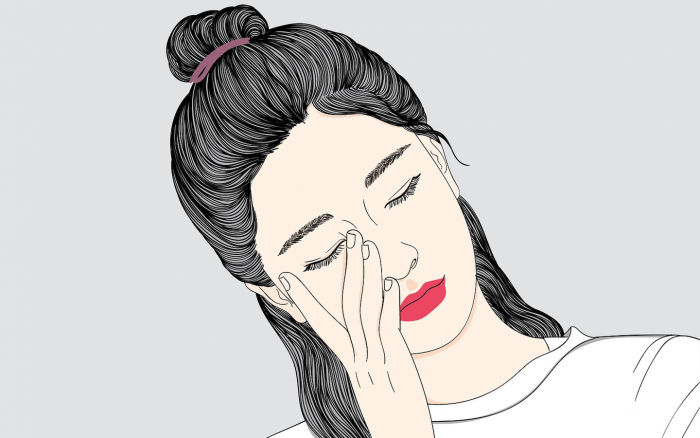Even if you mean well, you might be causing more damage than you realize.
The introduction to the video (below) says it perfectly:
“When we feel low or sad, we need to feel like we can count on our loved ones for support, guidance, and love to help pick us back up.
However, sometimes, words of support that may seem positive can aggravate negative feelings and emotions.
Toxic Positivity is a form of gaslighting that encourages us to ignore emotions, devalue problems, and impose unreasonable optimism.“
Here are 12 “harmless” phrases we should think twice about before saying:
1. “You might not want to hear this, but I’m going to say it anyway.”
This one is definitely more dependent on the situation.
Here’s an unhealthy version/usage: they think you won’t want to hear what they have to say, but they choose to violate your boundaries (whatever your reason for not wanting or needing to hear this information) anyway. And then they blame your reaction on you.
(Sounds like a kick in the pants you don’t need.)
2. “Everything happens for a reason.”
If you deny ever hearing or saying this (even with good intentions), you owe me 10 cents and a donut—and your pants are definitely on fire. This one sounds sweet, but it can really make someone who is struggling feel invalidated.
3. “What doesn’t kill you makes you stronger.”
When you’re going through severe psychological trauma, this (seemingly) powerful, uplifting phrase can actually have the opposite effect intended. You might feel shame for being unable to live up to this superhero-like invincibility.
4. “I’d love to help you, but…”
I think this talk-to-the-hand type of phrase is pretty self-explanatory. It makes you feel unimportant and unheard (all while the other person can still feel good about themselves for the “I want to help you” part.)
5. “Time heals all wounds.”
Although this phrase is true in the grand scheme of life, it can make you feel (again) muted and invalidated. And sometimes the trauma lasts a lifetime!
6. “It’s not the worst thing in the world.”
(I am 100 percent guilty of saying this one to myself. Oof.)
This is a way to try and simplify a problem, but, again, it doesn’t feel simple or small or “not the worst” when you’re the one going through it. You then might try to suppress the pain out of guilt.
7. “That’s nothing! Don’t worry about it!”
Translation: I don’t want to talk about it. Your feelings are not important. Be quiet.
8. “Don’t say I didn’t tell you so…”
This one is simply rude and serves no purpose beyond fluffing the ego of the one saying it.
9. “I’ve been there too.”
This one can seem like a good way to connect or empathize with someone who is grieving, but it actually might make them feel like they should be handling it better—since you’ve been there, done that.
10. “Well, if I were you…”
They’re not you. Period.
11. “You’re strong, so you’ll deal with it.”
Although this one is more benign compared to the other phrases, it’s important to remember that this conversation is usually happening when someone doesn’t feel strong—at all.
12. “I only want what’s best for you.”
Another seemingly benign phrase. But when this phrase is followed up by an invasion of emotional boundaries like advice-giving, it turns into a false, unhelpful heap of words.
It’s always hard to know the “right words” to say when someone is struggling, but, in the end, if we can be more aware of our personal intentions (and the situation) before we speak, we’re more likely to be of benefit to those around us.
Enjoy this video for more details:







Read 34 comments and reply